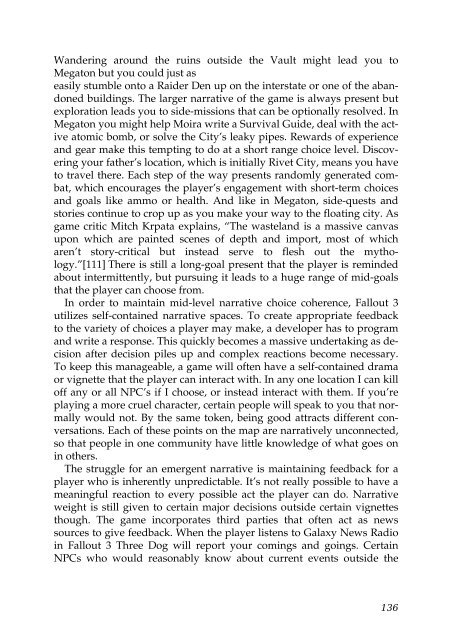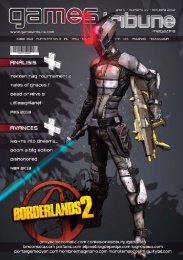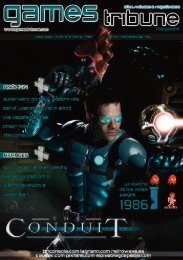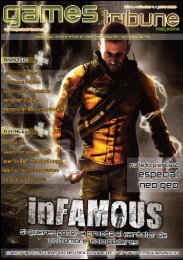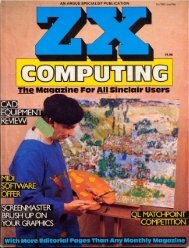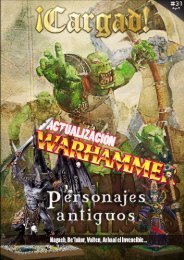Well Played 2.0: Video Games, Value and Meaning - OpenLibra
Well Played 2.0: Video Games, Value and Meaning - OpenLibra
Well Played 2.0: Video Games, Value and Meaning - OpenLibra
You also want an ePaper? Increase the reach of your titles
YUMPU automatically turns print PDFs into web optimized ePapers that Google loves.
W<strong>and</strong>ering around the ruins outside the Vault might lead you to<br />
Megaton but you could just as<br />
easily stumble onto a Raider Den up on the interstate or one of the ab<strong>and</strong>oned<br />
buildings. The larger narrative of the game is always present but<br />
exploration leads you to side-missions that can be optionally resolved. In<br />
Megaton you might help Moira write a Survival Guide, deal with the active<br />
atomic bomb, or solve the City’s leaky pipes. Rewards of experience<br />
<strong>and</strong> gear make this tempting to do at a short range choice level. Discovering<br />
your father’s location, which is initially Rivet City, means you have<br />
to travel there. Each step of the way presents r<strong>and</strong>omly generated combat,<br />
which encourages the player’s engagement with short-term choices<br />
<strong>and</strong> goals like ammo or health. And like in Megaton, side-quests <strong>and</strong><br />
stories continue to crop up as you make your way to the floating city. As<br />
game critic Mitch Krpata explains, “The wastel<strong>and</strong> is a massive canvas<br />
upon which are painted scenes of depth <strong>and</strong> import, most of which<br />
aren’t story-critical but instead serve to flesh out the mythology.”[111]<br />
There is still a long-goal present that the player is reminded<br />
about intermittently, but pursuing it leads to a huge range of mid-goals<br />
that the player can choose from.<br />
In order to maintain mid-level narrative choice coherence, Fallout 3<br />
utilizes self-contained narrative spaces. To create appropriate feedback<br />
to the variety of choices a player may make, a developer has to program<br />
<strong>and</strong> write a response. This quickly becomes a massive undertaking as decision<br />
after decision piles up <strong>and</strong> complex reactions become necessary.<br />
To keep this manageable, a game will often have a self-contained drama<br />
or vignette that the player can interact with. In any one location I can kill<br />
off any or all NPC’s if I choose, or instead interact with them. If you’re<br />
playing a more cruel character, certain people will speak to you that normally<br />
would not. By the same token, being good attracts different conversations.<br />
Each of these points on the map are narratively unconnected,<br />
so that people in one community have little knowledge of what goes on<br />
in others.<br />
The struggle for an emergent narrative is maintaining feedback for a<br />
player who is inherently unpredictable. It’s not really possible to have a<br />
meaningful reaction to every possible act the player can do. Narrative<br />
weight is still given to certain major decisions outside certain vignettes<br />
though. The game incorporates third parties that often act as news<br />
sources to give feedback. When the player listens to Galaxy News Radio<br />
in Fallout 3 Three Dog will report your comings <strong>and</strong> goings. Certain<br />
NPCs who would reasonably know about current events outside the<br />
136


